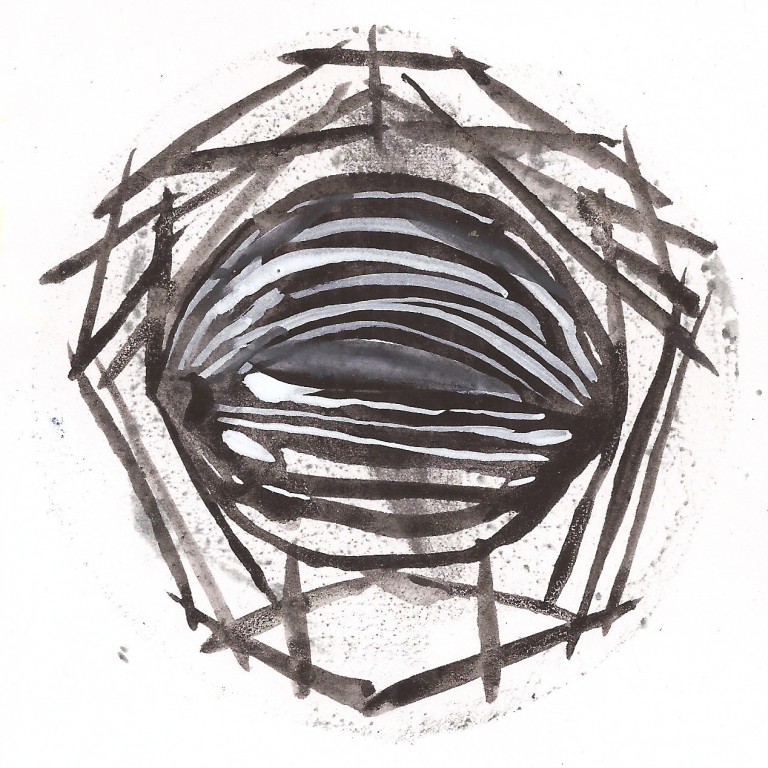
Labyrinth
Fear.
Falling.
Shaking.
Everything is vibrating.
I cannot wake myself.
Fear.
I must have managed it in the end because I’ve slept and awoken many times since then…as far as I know.
Commentary: When the labyrinth, the inner ear’s fluid canals (Venice), detects changes in acceleration, a sensation of falling can occur. The labyrinth works with other sensorimotor systems in the body, such as the visual system and skeletal structure, to check and maintain the position of our body at rest or in motion. If the body falls with no other momenta such as rotation, there is no falling sensation. This almost never occurs because when the faller leaves or loses ground support there are usually very significant quantities of residual momenta. Since these momenta continue as the person falls, a sensation of dysphoria (a state of unease or generalized dissatisfaction with life 1 1 Makes sense if you are falling.) arises. The faller spins and flips due to these residual momenta as well as to the asymmetric forces of air resistance on the asymmetry of the human body. While velocity continues to increase, the downward acceleration remains constant (thanks to gravity) and is not sensed. Increasing the drag force may even cause a feeling of ascent. 2 2 Potential comfort to be taken in thinking jumpers die feeling like they are flying; may also explain some sense that one is flying while dreaming.
A hypnagogic jerk is a sleep disorder or sleep phenomenon in which the dreamer/sleeper experiences a sudden muscle twitch accompanied by a feeling that the dreamer/sleeper is falling. There is no known reason why this occurs but one theory suggest that the muscles begin to relax right after one falls asleep, the brain senses these relaxation signals and misinterprets them as falling. The brain then sends signals to muscles to keep the body in balance, i.e. stop it from falling, hence the jerk experience.
[Question: we dream of falling straight down, but would someone who has fallen in waking life—and survived—dream more accurately of the rotation that actually occurs when the body falls through space?]
There is also some evidence to suggest a correlation between the frequency of hypnagogic jerks and anxiety. Other possible contributing factors might be fatigue; physical discomfort while sleeping; caffeine consumption and highly intense exercise.
[Question: could a state of dysphoria already present in the dreamer/sleeper bring on the hypnogogic jerk?]
Conclusion: Clearly one needs to be within a framework of mind and body to appropriately fall into the dreamspace. One should be neither too conscious nor too tensed one way or another. Enter improperly and fear results.
Another conclusion: Anyone whose goal is “something higher” must expect some day to suffer vertigo. What is vertigo? Fear of falling? Then why do we feel it even when the observation tower comes equipped with a sturdy handrail? No, vertigo is something other than the fear of falling. It is the voice of emptiness below us which tempts and lures us, it is the desire to fall, against which, terrified, we defend ourselves.
~Milan Kundera, The Unbearable Lightness of Being